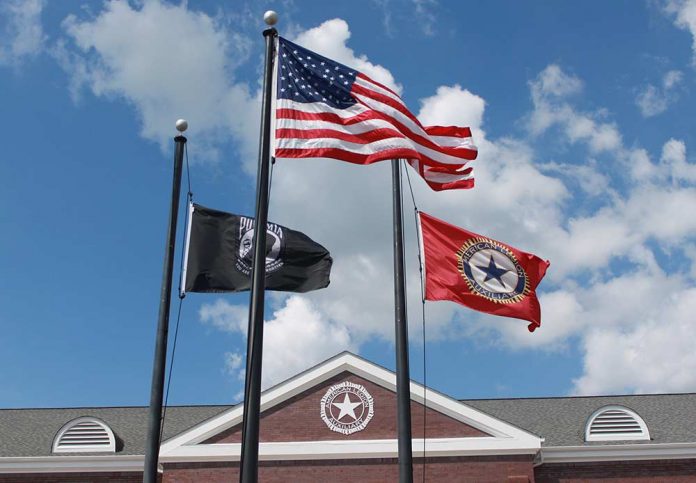INDIANAPOLIS — Flag Day is celebrated annually on June 14 to commemorate the adoption of the U.S. flag on June 14, 1777, by resolution of the Second Continental Congress. The flag symbolizes the pride of our nation and serves as a constant reminder of those in the military who fight to protect our country and our freedom.
American Legion Auxiliary (ALA) units nationwide will celebrate Flag Day with pride. Many will host special events and work with their American Legion post homes on disposal of unserviceable flag ceremonies.
The flag has led our troops into battle and serves as a symbol of our country, and our freedom. It has withstood difficult weather conditions and unimaginable assaults and remains flying outside of businesses, schools, government buildings, at our outposts around the world, and even on the moon.
It is strong and resilient, just like the American people. In a world with so much unrest, our flag serves as an enduring reminder of our strength and the privileges of freedom and stability we enjoy in the United States.
On Flag Day, take time as a proud American to show your patriotism, strength, and support for the veteran community by celebrating our nation’s flag the right way. As you raise your Old Glory this Flag Day, remember these simple U.S. Flag Code rules:
- When hoisting or lowering the flag, salute or place a hand over your heart.
- The flag should not be displayed on rainy days, unless it is an all-purpose flag.
- When lowered, the flag should never touch anything beneath it.
Visit Legion.org/flag/code for the full U.S. Flag Code.
There are several common questions about the U.S. flag. Here are a few:
Q: How are unserviceable flags destroyed?
A: The Flag Code suggests that “when a flag has served its useful purpose, it should be destroyed, preferably by burning.” For individual citizens, this should be done discreetly so the act of destruction is not perceived as a protest or desecration. Many American Legion posts conduct Disposal of Unserviceable Flag Ceremonies on June 14, Flag Day. This ceremony creates a particularly dignified and solemn occasion for the retirement of unserviceable flags.
Q: Can the flag be washed or dry-cleaned?
A: Yes. There are no provisions of the Flag Code which prohibit such care. The decision to wash or dry-clean would be dependent on the material.
Q: What should be the position of the flag when displayed by a staff in a church, public auditorium, or other public meeting places, whether indoors or outdoors, on platform, or on the floor at ground level?
A: When used on a speaker’s platform, the flag, if displayed flat, should be displayed above and behind the speaker. When displayed from a staff in a church, public auditorium or meeting place, the flag should hold the position of superior prominence, in advance of the audience, and in the position of honor at the clergyman’s or speaker’s right as he faces the audience. Prior to the Flag Code changes in 1976, the display procedure was somewhat different. Now the staffed flag should always be placed to the right of the speaker (observer’s left) without regard to a platform or floor level.
Celebrating those who serve our country is core to the American Legion Auxiliary’s values and the central focus of the organization’s activities. For more than a century, the organization has been honored to serve veterans, military, and their families.
To learn more about celebrating Flag Day and flag etiquette, visit ALAforVeterans.org.
**********
The American Legion Auxiliary (ALA) is a community of volunteers serving veterans, military, and their families. Our members also support the mission of The American Legion in improving the quality of life for our nation’s veterans. Proud sponsor of ALA Girls Nation, National Poppy Day® and recognized for advocating for veterans on Capitol Hill, the more than 500,000 ALA members across the country volunteer millions of hours annually and raise millions of dollars in service to veterans, military, and their families. Founded in 1919, the ALA is one of the oldest patriotic membership organizations in the U.S.A. To learn more and to volunteer, join, and donate, visit www.ALAforVeterans.org.







